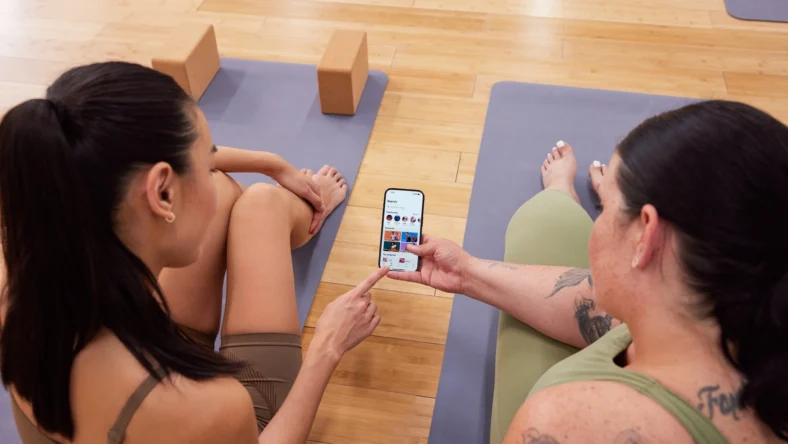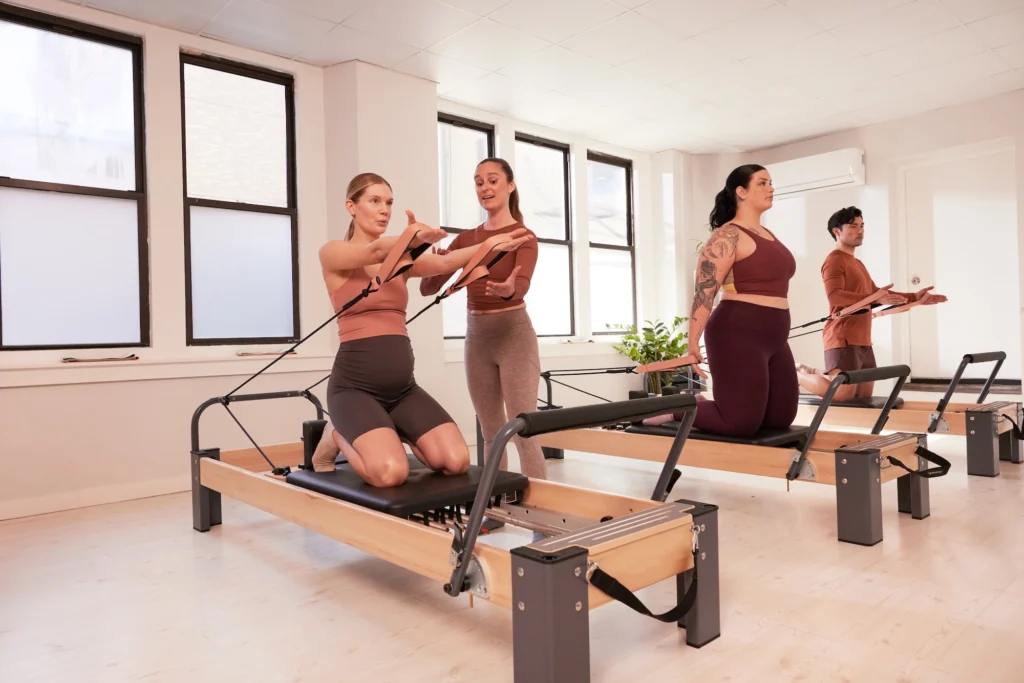
As the definition of wellness evolves, ClassPass is expanding into an ecosystem of self-care — on a global scale.
Holistic health is no longer a fringe idea — it’s a mainstream expectation. Today’s consumers aren’t just looking to burn calories or build muscle. They want routines that reduce stress, foster community, promote recovery and elevate their everyday lives. From ice baths to coworking spaces, what we call “wellness” now spans the physical, mental, emotional and even social.
ClassPass, long known for revolutionizing access to boutique fitness, has smartly evolved alongside this broader shift. What began as a platform for booking workouts has expanded into a global ecosystem of self-care. With recent partnerships spanning food and beverage, coworking, recovery and even concerts, ClassPass has transformed into something more ambitious: a one-stop shop for holistic wellness.
“Our mission is simple: reduce screen time, eliminate decision fatigue and get people back out into the world, doing things that make them feel like the best version of themselves,” said Jeff Bladt, SVP of Pricing & Marketplace at Playlist, the parent brand of ClassPass.
From Fitness App to Lifestyle Platform
Today, ClassPass operates in 31 countries, connecting users to thousands of studios, spas, coworking spaces and wellness providers around the world. That global presence enables consistent access to holistic self-care, whether you’re at home, traveling for work or exploring a new city. It’s not just big — it’s borderless.
“Holistic wellness encompasses the full spectrum of physical, mental, emotional and social well-being,” Bladt explained. “For a long time, wellness was synonymous with working out, but it’s so much more than that.”
That shift in philosophy is reflected across the ClassPass experience. Users can still book Pilates, HIIT or any fitness experience — but now they can also schedule acupuncture, IV therapy, cryotherapy, facials, coworking sessions at WeWork and even attend a live music festival, all from the same interface.
“ClassPass aligns with this broader definition by offering a unified platform that goes far beyond the gym,” Bladt said. “We’re reimagining how people access and experience wellness, with the goal of helping users design custom routines that support their whole selves — not just their fitness goals.”

Expansion — Fueled by Demand
This evolution is more than a strategy shift, it’s backed by hard numbers. As of May 2025, ClassPass saw a 44% year-over-year increase in reservations, a clear indicator of consumer appetite for in-person experiences that span wellness and lifestyle.
In fact, community-focused activities are driving a significant share of that growth. Volleyball bookings jumped 250% year-over-year. Soccer rose by 158%. Ice skating surged nearly 700% between 2023 and 2024. As Bladt noted, “Wellness has evolved. A decade ago, it was largely synonymous with gyms and studios. Now, it’s broader and more diverse.”
This personal and communal blend is what today’s consumers want: experiences that relieve stress, bring joy and fit seamlessly into their day. ClassPass is uniquely positioned to meet that demand, thanks to its focus on discovery and ease of access.
“Across wellness, beauty, recovery and more, the discovery and booking experience remains broken,” said Bladt. “ClassPass is built to fix that. We make it easy to explore and book in-person experiences that fit busy lives.”
That expansion now includes beloved brands like CHOPT for nutritious meals, WeWork for productive coworking environments and event partners like Breakaway Music Festival. These additions signal a clear direction: ClassPass is where people begin their self-care journey — whatever that looks like.
“We ran pilot programs in select markets before rolling out more broadly, and the results have been incredibly encouraging,” said Bladt. “By integrating with beloved brands, we’re making it easier for people to access the full spectrum of what self-care can look like, whether that’s a healthy meal, a productive work environment or a night of music and connection.”
That multidimensional access is resonating. As of June 2025, 25% of ClassPass users who booked a WeWork reservation also booked another ClassPass activity on the same day — proof that users want variety and value an ecosystem that meets multiple needs in one place.

What do Users Think?
ClassPass isn’t just evolving from a corporate strategy standpoint, it’s becoming indispensable to its users. “I get so bored with the gym! That’s why I like ClassPass. Variety!!” one member shared on social media platform X.
Another added: “Itching to increase my credits on ClassPass, finding way too many new things now.”
These testimonials echo a broader consumer trend: people want flexibility, freedom and the ability to design their wellness routines based on how they feel that day, not just what’s on a class schedule.
In terms of what’s next for ClassPass?
Bladt said the platform’s expansion is still guided by its original insight: discovering in-person experiences shouldn’t be difficult.
“Originally, booking fitness classes meant navigating fragmented platforms, with no easy way to filter by schedule or preference. The friction was so high that even motivated people often gave up before stepping into a class.”
That friction hasn’t gone away, especially in non-fitness categories — but ClassPass is removing those barriers.
“Now, it’s a go-to tool for total self-care. Whether someone is planning a workout, booking a massage, grabbing lunch or attending a concert with friends, ClassPass is where that journey starts,” said Bladt.
For brands in the fitness and wellness space, ClassPass’s evolution holds a powerful lesson: wellness today is layered, personal and far-reaching. The businesses that thrive in this new era will be those that understand people’s desire to feel good — physically, emotionally and socially — and deliver integrated experiences that reflect that reality.
Ultimately, Bladt said, success means “redefining what a wellness brand can be: integrated, inclusive, accessible and deeply impactful.”
